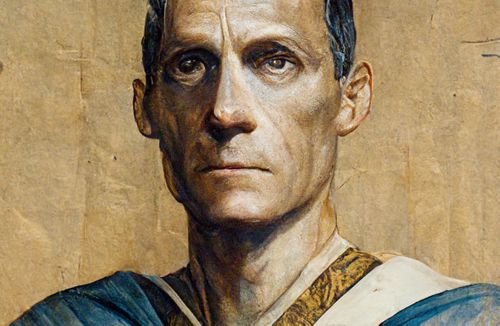Caesar's CV
Dec 06, 2022 · 2 mins read
0
Share

Introduction. Nothing shapes a country's future more than the talent and character of its leaders. Which leads us to the question posed and answered in this Memo: what sort of leader should a nation elevate to its throne, if it wants to achieve greatness? Thomas Carlyle answers👇
Save
Share
Heroes are generalists: “I have no notion of a truly great man that could not be all sorts of men. The Poet who could merely sit on a chair, & compose stanzas, would never make a stanza worth much. He couldn’t sing the Heroic warrior unless he himself were a Heroic warrior too.”
Save
Share
Intelligence as Broad Ability: “What we call imagination, fancy, understanding, and so forth, are but different figures of the same Power of Insight, all indissolubly connected with each other, physiognomically related; that if we knew one of them, we might know all of them.”
Save
Share
Besides being an intelligent generalist, Carlyle's Caesar is self-aware. He knows "by instinct" the following things: "What condition he works under, what his materials are, what his own force and its relation to them is." He accepts reality even when its "feeble, forlorn."
Save
Share
Carlyle emphasizes the hero's "ineradicable feeling for reality." While others make their peace with convenient lies and corrupt official make-believe, a hero can't help but remain truthful to reality as he sees it. His sincerity and his refusal to lie make him fit to lead.
Save
Share
Great leaders with vision and public's trust are needed to organize the young workforce: “The Organisation of Labour is the universal vital Problem of the world. To bring these hordes of outcast captainless soldiers under due captaincy? This is really the question of questions.”
Save
Share
The consequence of leaving men uncommanded: “Captainless, uncommanded, these wretched outcast soldiers, since they cannot starve, must needs become bandits, street-barricaders — destroyers of every Government that cannot put them under captains.”
Save
Share
Democracy sets the stage for cascading failures because getting the majority’s approval becomes more important than avoiding error. Error leads to “failure,” which inevitably results in “sorrow and misery.” Ultimately it is the “demos” - the people - who suffer.
Save
Share
The king is inevitable: “While false Formulas are getting trampled everywhere into destruction, genuine Substances unexpectedly unfold themselves indestructible. In rebellious ages, when Kingship itself seems dead and abolished, Cromwell, Napoleon, step forth again as Kings.”
Save
Share
Bottom line. A great leader, then, is a multi-tasking, truth-telling, mass-organizing genius. Carlyle places a special emphasis on a Caesar's sincerity - the word sincere appears 3 times more often than the word heroism in his book. Find out why: The Primary Trait of a Hero.
Save
Share
0